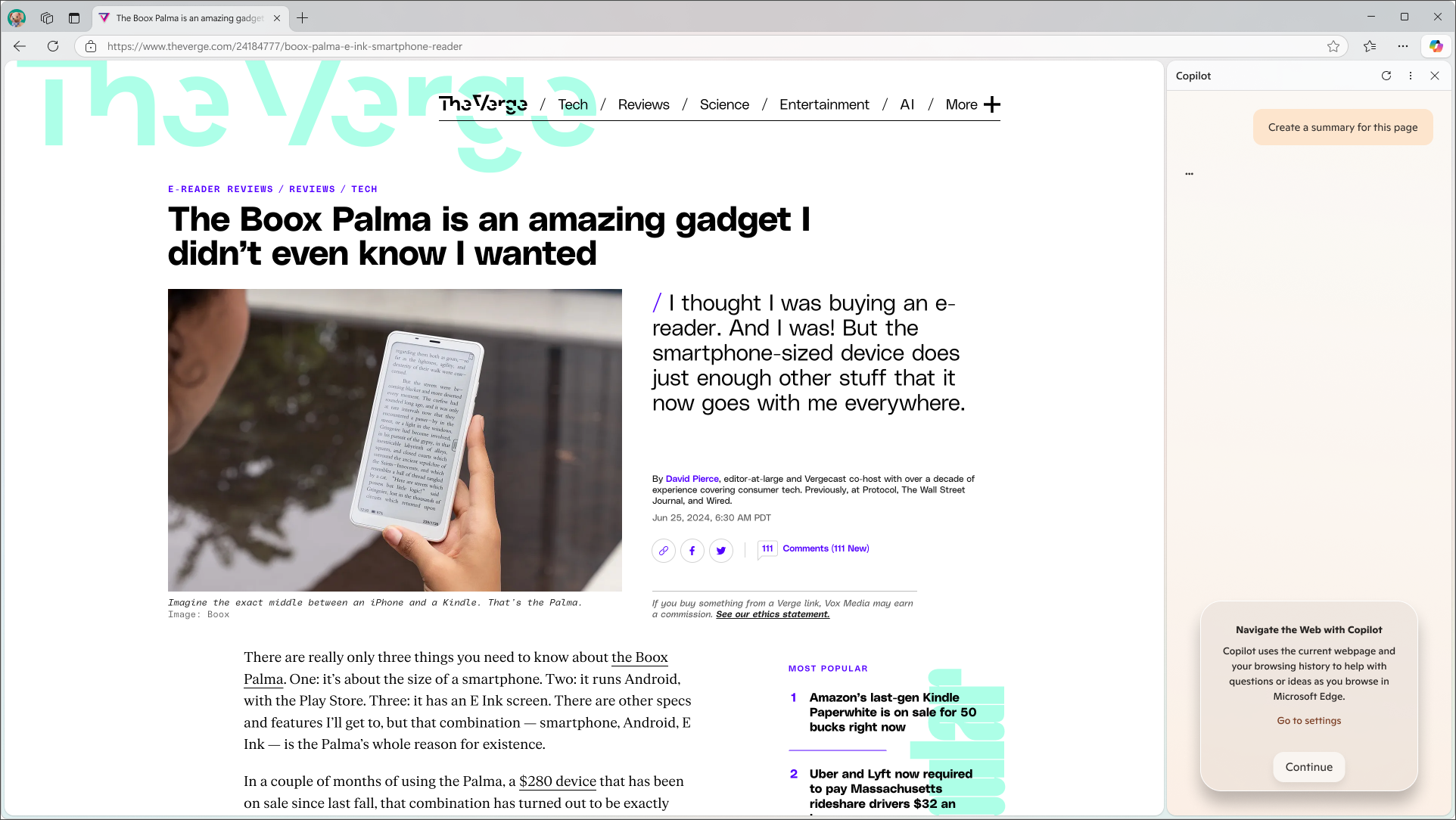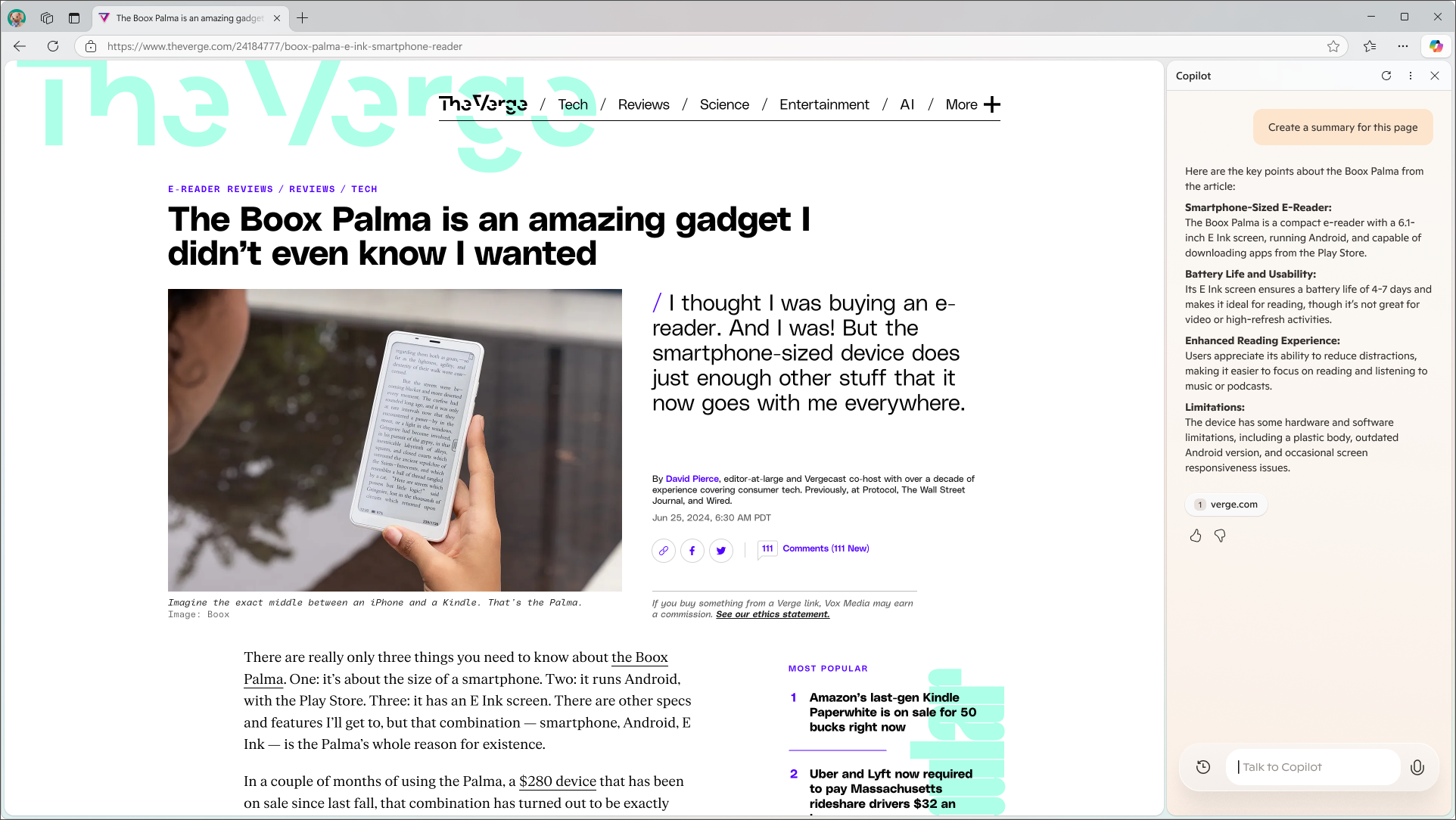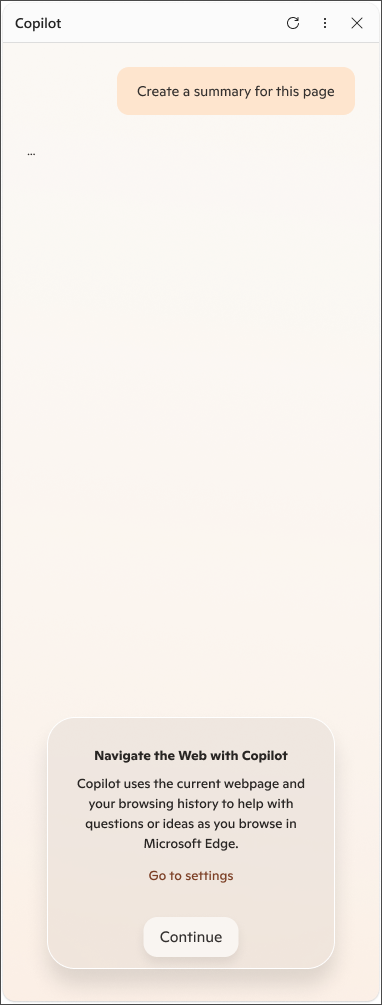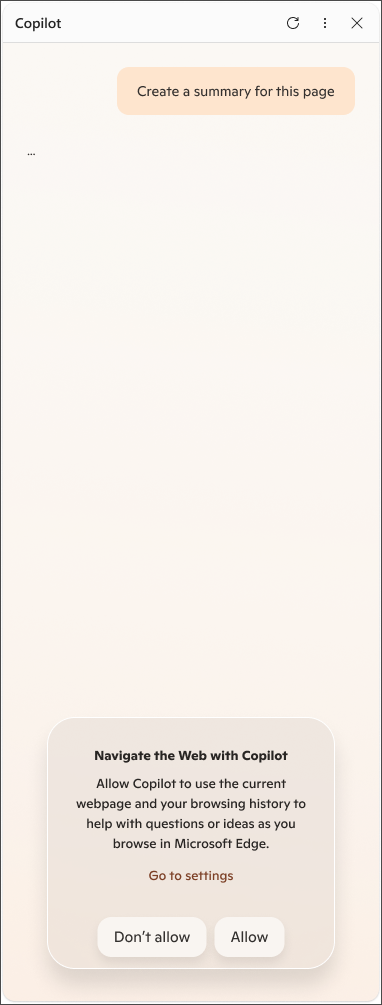Note: To learn about the terms like 'prompt', 'responses', 'recent conversation history', 'browsing context', 'grounding', 'page information' and so on used throughout this article, please refer to the glossary of terms on this page.
Microsoft Edge is your AI-powered browser. With Copilot in Microsoft Edge, you can get answers to your questions without leaving the tab or window that you're already in. Ask Copilot to help you make decisions, research topics, or summarize web pages or PDFs to find exactly what you're seeking.
When you submit a prompt to Copilot in Microsoft Edge, we may use multiple sources of information to help answer in a way that is relevant and helpful to you. These include the query, recent conversation history, and browsing context. You can customize your permissions in Edge by going to Settings > Copilot and sidebar > Copilot.
Topics in this article
How Copilot answers your prompts
Data and consent used by Copilot in Edge
How Copilot answers your prompts
The large language model that operates in Copilot uses these inputs to answer your prompt:
-
Ground the response with search results from Microsoft Bing.
-
Make the answer more relevant to you based on your conversation history.
-
Make the answer relevant for the browsing context – such as when asking Copilot to summarize the current page you're on.
In the example below, you can ask Copilot to summarize a PDF document while you are browsing. Copilot can then send the content of the document to the model to generate a summary.


Data and consent used by Copilot in Edge
Based on the prompt you input, Microsoft Edge will determine the source(s) it needs to respond.
For prompts that don't need browsing context, such as "Help me plan a trip to Cannon Beach," Microsoft Edge does not share page information outside of the URL, page title, your query, and previous conversation history to help Copilot answer your query effectively.
For prompts that need browsing context, (e.g., when you ask Copilot to summarize a webpage or answer a question about a product you’re viewing), Microsoft Edge will use information from your webpage/browser to answer the question. If you do not wish for Copilot to use browsing context, you can update your preferences as shown below.
First time notice

To comply with additional regulations in the EU region and China, Copilot will explicitly ask for your permission before using information from Microsoft Edge for the first time as shown below. Copilot will then remember this preference and use browser information as appropriate.

You can modify this permission anytime by going to Settings > Copilot and sidebar > Copilot and toggling Allow Copilot to read context clues on the web.
Information use and storage
-
Conversation history stores all Copilot queries and responses. Conversation history is stored until a user deletes it for users signed in with a Microsoft account. This is independent of whether using Copilot in the Microsoft Edge, on Copilot web domains, on Bing.com, or on Microsoft mobile apps such as Bing, Edge, and Copilot. To delete all conversations with Copilot, visit your Privacy Dashboard > Browsing and search > Copilot activity history > Clear all
-
Page context-based conversations: Copilot can answer page context-based questions on most websites with user consent in the Edge settings. Page context-based questions will work on private PDFs. Edge and Copilot will not store or train on the context that has been used for grounding.
Our commitment to responsible AI
Microsoft has numerous protective measures in place that are continuously evolving. For details, please refer to The new Bing: Our approach to Responsible AI.
Glossary of terms
Query: A question a user types in Copilot.
Bing index page: Any website URL that is publicly available on the internet for Bing to scrape and can be reached through an http:// or https:// URL.
Non-Bing index page: Any webpage or local file that is not available publicly for Bing to scrape but is open on Microsoft Edge.
Grounding: Centering the response provided to a user’s query or prompt on high-ranking content from the web, and providing links to websites where users can learn more. Bing ranks web search content by heavily weighting features such as relevance, quality and credibility, and freshness.
Response: The text Copilot outputs in response to a prompt. Synonyms for “response” include “completion,” “generation,” and “answer."
Conversation history: A combination of user query and response in the Copilot format.
Browsing context: Comprised of the page URL, page content, or documents that are open in the active tab of the Microsoft Edge browser. These could be webpages, local PDFs, Word documents, or other local files. For example, when you ask Copilot to "Summarize this page" while browsing a long topic or webpage. Copilot uses the page context (such as the page URL) and the page content to summarize the topic for you.
Page information: Includes the web page content or the content of the document you have open in the active tab of the Microsoft Edge browser.










